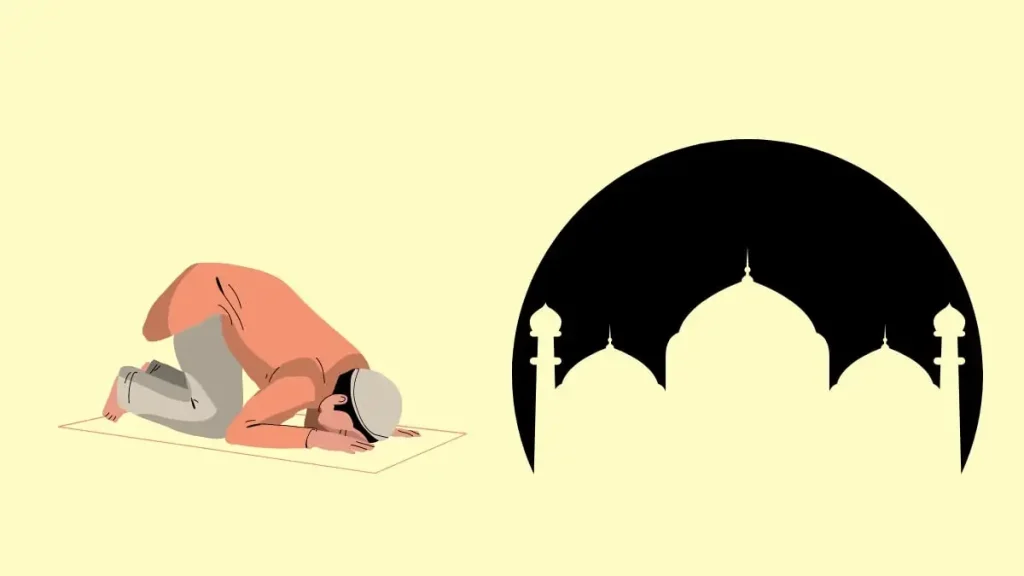Prayer is obligatory for every Muslim. Salvation in this time and hereafter is impossible without prayer. Prayer keeps one free from sin. A clear, beautiful and comfortable life is obtained. But you should know – What happens if you don’t pray in Islam? Allah says, “Surely prayer prevents from indecent and unjust actions.” (Sura: Ankabut, verse: 45)
Importance of prayer in Islam
The most important act after faith is prayer. Prayer is one of the five pillars of Islam. It is obligatory to pray five times a day. The word Salat is used hundreds of times in the Holy Quran.
Out of this, the word is used 85 times (ism) as a noun or noun and 15 times (fi’l) as a verb. (Islam Web, ‘Lafzul Salati Phil Qur’an’)
Mandatory rules for all Muslims: Only Muslims should pray. Standing, sitting, lying down, pointing – in any possible situation, prayer should not be missed. A believer must pray wherever he is at home and abroad, on the road and in the country and abroad, in the sea and space.
What happens if you don’t pray in Islam?
If you do not pray in Islam then you will commit a great sin. Because not praying is the reason to go to hell in the afterlife. It is mentioned in the Holy Qur’an, “(The people of Hell will be asked) what has thrown you into Saqr (Hell)?” They will say, We were not among those who offered the prayer. (Surah: Muddassir, Verses: 42-43)
6 happens of not praying in Islam
Severe punishment in hell
Benamaji will be thrown into the deep pit of Hell on the Day of Resurrection.
After describing Noah, Ibrahim and Israel (A.S.), Allah Almighty says in the Holy Qur’an, “After they came the wrongdoers, they broke the prayer and followed their instincts. So they will soon witness ‘Gaia’. (Surah: Maryam, verse: 59)
‘Gaia’ is the bottom of a river of hell, the depths of which are of the worst taste of blood and pus. (Tafseer Ibn Kasir) ‘Gaia’ is the name of a valley in Hell. (Tafsir Kashshaf and Nasafi).
Harsh warning
Not only the punishment in the hereafter but also the present life will be devoid of blessings if you do not pray. Abdullah Ibn Umar (R.A.) said Rasulullah (S.A.W.) said that the family and wealth of a person who misses the Asr prayer will be destroyed. (Muslim, Hadith: 1304)
Humiliating punishment on the Day of Resurrection
On the Day of Resurrection, the person who prays will be the first to be humiliated and insulted. His description is given in a verse of the Qur’an, the meaning of which is as follows: “Remember the Day when the feet will be uncovered.”
On that day they will be called to prostrate, but they will not be able to. Their vision is degraded, and depravity will cover them. But when they were safe, they were called to prostrate. (Surah: Kalam, Verses: 42-43)
Important provisions of prayer
The faith of the one who does not pray is very weak. His role in Islam is very little. The Holy Prophet (PBUH) has warned not to pray as an act of disbelief and the nature of a disbeliever.
It is said in a hadith that there is no prayer in it. (Musnad Bazzar, Hadith: 8539)
Prayer is the difference between a believer and a disbeliever
Faith and disbelief are distinguished through prayer. Jabir (R.A.) said I heard the Prophet (S.A.W) say, the difference between a servant and shirk and kufr is to leave the prayer. (Muslim, Hadith: 148)
Prayer is one of the means of salvation in the afterlife. Buraida (R.A.) said, Rasulullah (S.A.W) said, The promise (of liberation) between us and them (disbelievers) is prayer. So whoever abandons the prayer, commits kufr. (Tirmidhi, Hadith: 2621)
There are various interpretations of this hadith. One interpretation is that when one abandons prayer, it is as if he joins in disbelief. Not offering his prayers is tantamount to Kufr. Not praying is an act of kufr. However, whether that person can be directly called a kafir or not, the matter demands a detailed explanation.
The means of liberation in the afterlife
What a blessing to pray! And what a big misfortune not to pray! In the hadith, Rasulullah (s.a.w.) said that whoever regularly prays five times a day with care, this prayer will be a light for him on the Day of Resurrection.
It will be a document of his faith and Islam and a pillar of his salvation. And whoever does not pray regularly with seriousness, prayer will not be a light for him in the dire situation of the Day of Judgment. There will be no evidence and he will not escape punishment. (Musnad Ahmad, Hadith: 6576)
FAQs
What happens if a Muslim does not pray?
Neglecting prayer is considered as a major sin in Islam. It can be a spiritual fall, weakening of faith and going away from God. The absence of continuous prayer without valid causes can have serious consequences in later life.
Is there any consequence of not praying in Islam?
The consequences of not praying may be different. In this life, it can reduce the emptiness, spiritual perfection and turn away from the Muslim community. Later, if Allah does not forgive the person, it can be punished.
Can a Muslim make missed prayers?
Yes, if Muslims have a valid cause of their absence like illness or travel, they can pray to miss them. However, it is essential to try to be missed as soon as possible to avoid accumulation.
If a Muslim deliberately refuses to pray?
Refusing to pray without intentionally valid is considered as a serious sin in Islam. It shows the lack of obedience to Allah and His command. Uninterrupted rejection can lead to spiritual deprivation and isolation from faith.
Is there an apology for not praying in Islam?
Allah is mercy and forgiving. If a Muslim sincerely regrets to neglect the prayer and resolves for improvement, Allah can forgive them. However, it is very important for the individual to regret it sincerely for their activities and to try to establish regular prayers.
Can a Muslim pray anywhere and at any time?
Muslims are encouraged to pray in a clean and appropriate place, but they can pray almost anywhere in need. However, there is a specific time during the day when praying, known as five daily prayers, which are mandatory to observe Muslims.







